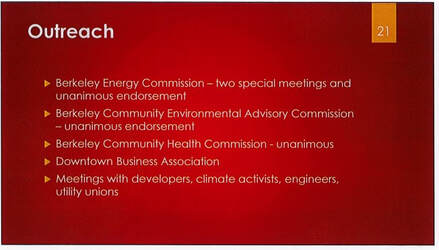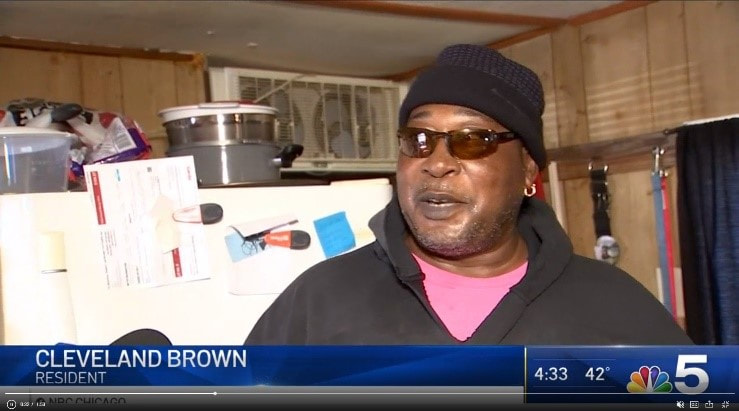National Urban League President Marc Morial explained, “generally speaking, people are debating these issues in some instances without consultation with the leaders of the African American communities and neighborhoods affected by these issues.” Rev. Jessie Jackson, head of the Rainbow PUSH Coalition, added that even though he supports transitioning away from fossil fuels in the long term because of climate concerns, people of color face energy poverty today. “I think natural gas is a temporary—I don’t think we ought to make it the end-all, be-all solution, but in the interim, people in communities of color should not pay the brunt of suffering through cold winters,” said Rev. Jackson. He concluded, “In the meantime, those who are down and out have to have it in the meantime.” Left out of the political debates about banning natural gas are residents like those in Pembroke Township just outside of Chicago, where the median household annual income is around $16,000 and many residents lack indoor plumbing and sufficient home heating. Rev. Jackson has been working with local leaders to bring a natural gas pipeline to the community, according to the local NBC news affiliate in December. Resident Cleveland Brown relies on splitting firewood for his woodburning stove to keep warm. Last fall it took him a month to collect a stack several feet high of firewood for the winter, but it was still not going to be enough. He told the station, “If I had natural gas, it wouldn’t be so much work. If I had natural gas I wouldn’t have to get up and go outside to keep it going, you know what I mean?” He concluded, “If we could get natural gas it would work out better for everybody out here.” Unlike Pembroke, Berkeley, California city leaders’ took self-imposed action against natural gas. Last July, they passed the first-in-the-nation local ordinance banning new and modified natural gas hookups. New homes, including new developments to provide low-income housing, won’t be able use low-cost, clean, efficient natural gas. The new ordinance was passed by the city council following a recommendation from the Berkeley Energy Commission, an advisory panel to the council focusing on “climate protection, energy conservation and alternative energy development.” Absent from the public docket of both the city council and the energy commission leading up to the measure’s passage is any evidence of consultation with civil rights groups or advocacy groups focused on people of color in Berkeley.  Instead, what is clear is that the natural gas ban was championed by environmental groups and the “green” industry that stands to benefit. Councilwoman Kate Harrison, author of the ban, touted reaching out to developers, climate activists, engineers and utility unions in the process of building support for her measure. She mentioned no outreach to civil rights groups. She relied on the Berkeley Energy Commission, whose panel chairwoman, Cate Ledger, is a green architect at Green Dwellings and former environmental advocate in Washington DC. The co-chair is Janet Stromberg, co-founder of 350BayArea.org, which pushes an extreme environmental agenda. Both served as expert witnesses the day the city council debated the natural gas ban last July. They were joined during the public comment period by several environmental organizations supporting the measure, including the Sierra Club, EarthJustice and Physicians for Social Responsibility. No civil rights groups were on hand to express support for the ban, which seems to be a common pattern in these debates. Tamara Toles O'Laughlin, the North America director for 350.org, admitted to Axios this week, “350.org doesn’t have relationships with the Rainbow PUSH Coalition (led by Jackson), National Action Network (led by Sharpton) and Morial’s National Urban League.” So it’s not surprising the Bay Area chapter did not consult these groups or their allies when debating the natural gas ban. Berkeley is not the only city where minority advocates have been left out of debates by elected officials attempting to restrict natural gas. The Alliance’s Western Wire news project documented how the Denver City Council last year left out minority groups among many other stakeholders when trying to rush through a natural gas tax. Elected officials and environmental groups pushing bans on natural gas do so to the detriment of minority communities. A study by the American Council for an Energy-Efficient Economy (ACEEE) and the National Association for the Advancement of Colored People (NAACP) found minorities pay higher energy costs. According to ACEE, “African-American households experienced a median energy burden 64 percent greater than white households (5.4 percent and 3.3 percent, respectively). Latino households paid lower utility bills, on average, than African-American and white households did, yet they experienced a median energy burden 24 percent greater than white households (4.1 percent and 3.3 percent, respectively).” Lead researcher Ariel Drehobl, said: “These families are at greater risk for respiratory diseases and increased stress, and they can experience increased economic hardship and difficulty in moving out of poverty.” Back in Pembroke, Mayor Mark Hodge praised support from civil rights leaders like Rev. Jackson in the effort to build a natural gas pipeline to help his community. Standing beside Jackson at a local school in December, the mayor said, “This community has been overlooked over the past 48 years for natural gas. So we’re in need of industry and we’re in need of jobs and our school is in need of natural gas.” Comments are closed.
|
Archives
June 2024
Categories |



 RSS Feed
RSS Feed